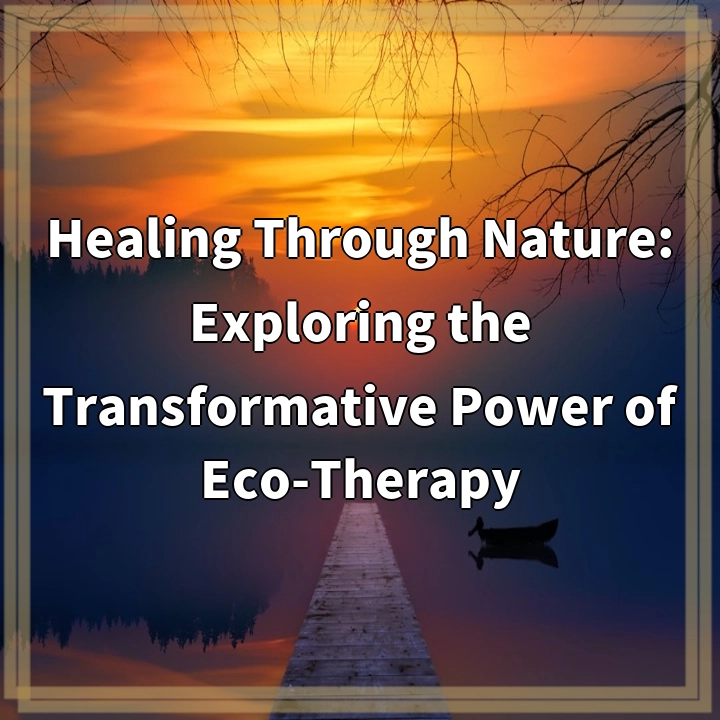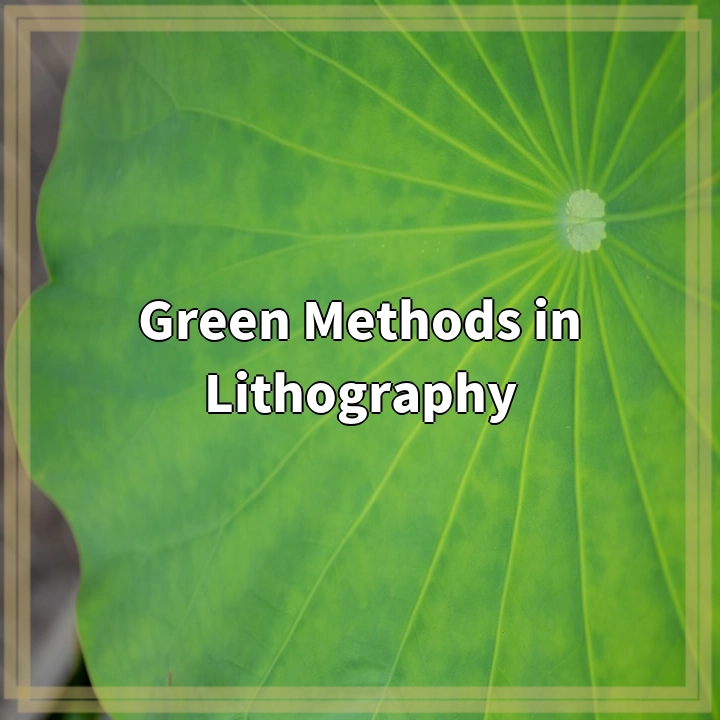
What is Eco-Therapy?
Eco-therapy, also known as nature therapy or green therapy, is an emerging field that harnesses the healing power of nature to support mental, emotional, and physical well-being. It recognizes the deep connection between humans and the natural world, and emphasizes the therapeutic benefits of spending time in nature.
Exploring the Transformative Power of Eco-Therapy
Eco-therapy offers a holistic approach to healing, incorporating mind, body, and spirit. It involves a range of activities and practices that aim to improve overall well-being and promote a harmonious relationship with the environment. These can include nature walks, wilderness retreats, gardening, animal-assisted therapy, and even eco-art therapy.
Benefits of Eco-Therapy:
Eco-therapy has been shown to have numerous positive effects on individuals, including:
- Reducing stress and anxiety levels
- Improving mood and overall mental health
- Fostering a sense of connection and belonging
- Increasing physical health and well-being
- Enhancing self-esteem and confidence
- Promoting mindfulness and inner peace
Real-World Problems Associated with Eco-Therapy:
While eco-therapy offers tremendous potential for healing and personal growth, there are a few real-world problems that need to be addressed:
Accessibility and Equity:
Not everyone has easy access to green spaces or the resources to participate in eco-therapy. This can create barriers for individuals living in urban areas or facing financial limitations. Initiatives should be implemented to ensure equal opportunities for all individuals to benefit from eco-therapy.
Integration with Traditional Mental Health Care:
Eco-therapy is often seen as an alternative or complementary approach to traditional mental health care. However, there is a need for more research and collaboration to integrate eco-therapy into mainstream mental health practices. This includes training mental health professionals and developing evidence-based guidelines.
Environmental Stewardship:
While eco-therapy promotes a deep connection with nature, it is also crucial to address the broader environmental issues that threaten our ecosystems. Eco-therapy should be coupled with efforts to promote sustainable living, conservation, and environmental advocacy.
Conclusion:
Eco-therapy holds immense potential to improve well-being and nurture a healthier relationship with the natural world. By recognizing the healing power of nature and addressing the real-world problems associated with eco-therapy, we can unlock its transformative benefits for individuals and the planet as a whole.

Solutions for Eco-Therapy
Improving Accessibility and Equity
Eco-therapy can become more accessible and equitable by:
- Creating more green spaces in urban areas and ensuring easy access to nature for all individuals
- Offering subsidized or free eco-therapy programs for those facing financial limitations
- Collaborating with community organizations to bring eco-therapy to underserved populations
Integration with Traditional Mental Health Care
To integrate eco-therapy into mainstream mental health care, solutions include:
- Providing training and education to mental health professionals on the benefits and practices of eco-therapy
- Developing evidence-based guidelines and best practices for incorporating eco-therapy into treatment plans
- Promoting collaborations between eco-therapy practitioners and mental health professionals for holistic care
Promoting Environmental Stewardship
To address the environmental aspects of eco-therapy, solutions involve:
- Including environmental education and awareness as part of eco-therapy programs
- Advocating for sustainable living practices among eco-therapy participants and the wider community
- Encouraging engagement in conservation initiatives and supporting environmental advocacy efforts
Conclusion
By implementing these solutions, we can ensure that eco-therapy becomes more accessible, integrated into mainstream mental health care, and promotes environmental stewardship. These steps will enhance the transformative power of eco-therapy, benefitting individuals and the environment alike.















